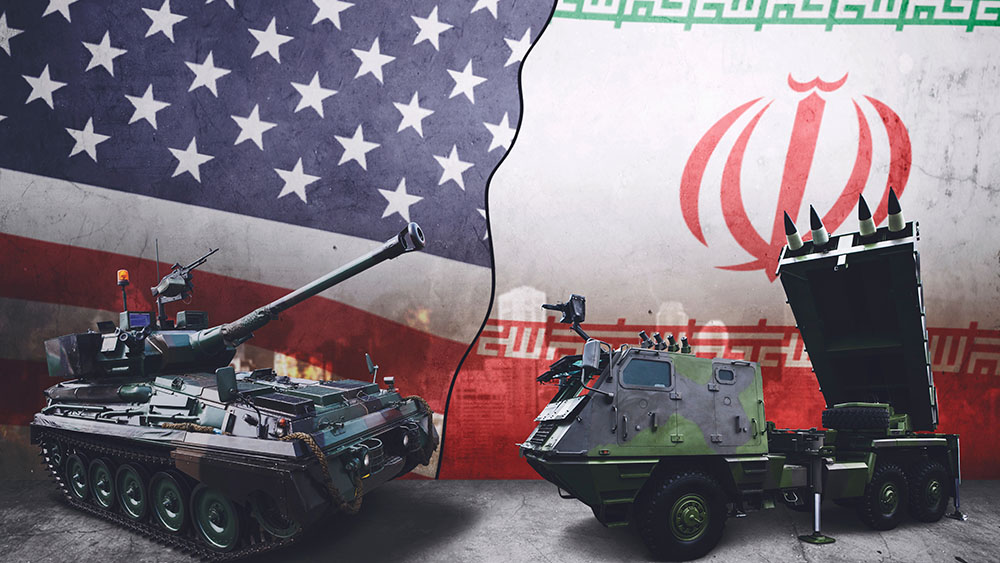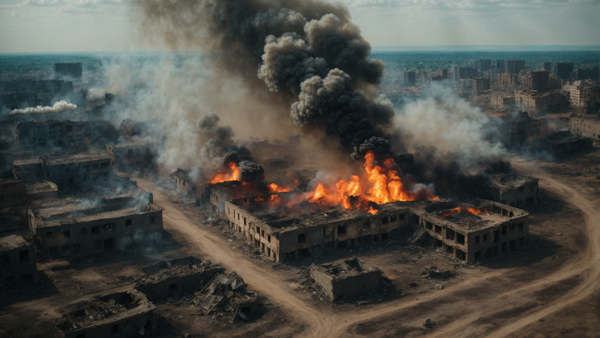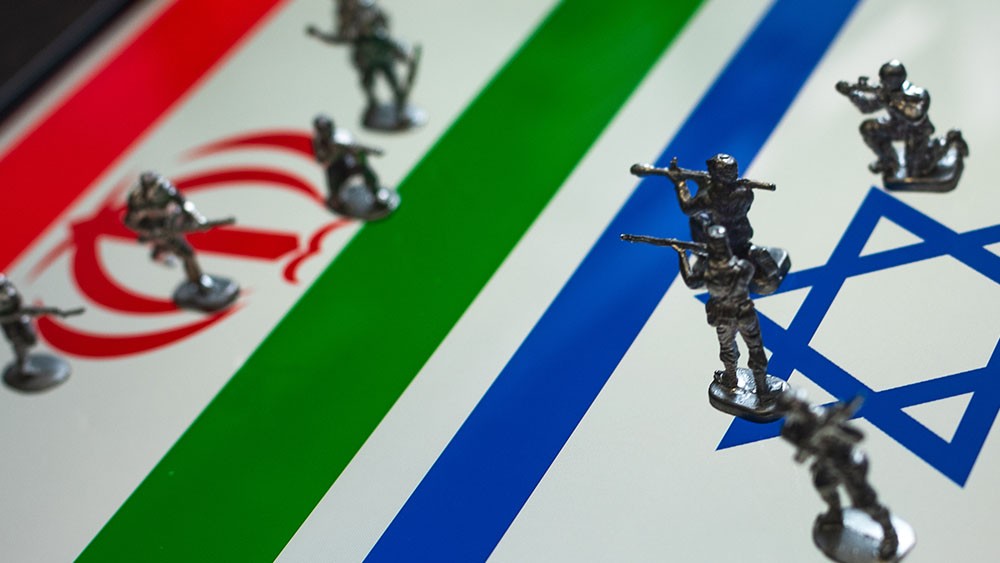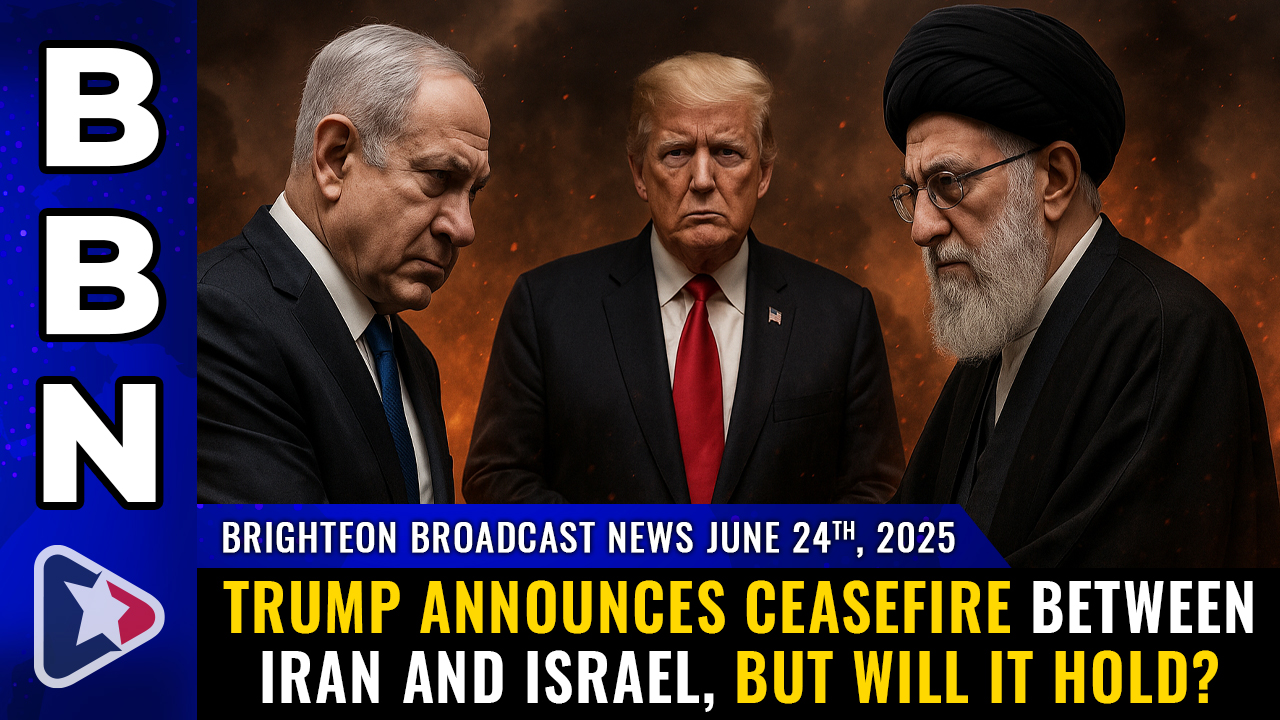 Parler
Parler Gab
Gab
- Trump urgently warned Tehran residents to evacuate without explanation amid escalating Israel-Iran hostilities.
- The Pentagon deployed additional defensive assets, signaling potential U.S. involvement in the conflict.
- Iran denied seeking nuclear weapons but vowed fierce retaliation if attacked further.
- Israel’s strikes have killed hundreds in Iran, while Tehran’s missile barrages continue targeting Israel.
- Tehran descends into chaos as residents flee and diplomatic efforts collapse, raising global war fears.
Trump’s ominous message and Iran’s defiance
Trump’s post was characteristically blunt: "IRAN CANNOT HAVE A NUCLEAR WEAPON. I said it over and over again!" He followed with the evacuation order, offering no further details. The president has long positioned himself as a hawk on Iran, frequently criticizing the 2015 nuclear deal and advocating for maximum pressure tactics. His latest warning suggests he believes the current conflict could spiral into a far deadlier phase. Iran, meanwhile, has denied seeking nuclear weapons and framed Israel’s strikes as an unprovoked act of war. Iranian Foreign Minister Abbas Araghchi declared on X, "Iran did NOT begin this war and has no interest in perpetuating bloodshed. But we will proudly fight to the last drop of blood to protect our land." The rhetoric underscores Tehran’s defiance, even as its capital faces the threat of further bombardment.Unprecedented U.S. military movements
The Pentagon’s confirmation of additional "defensive capabilities" being sent to the Middle East raises critical questions about Washington’s next steps. Defense Secretary Pete Hegseth stated on X, "Protecting US forces is our top priority, and these deployments are intended to enhance our defensive posture in the region." Yet reports from Military Watch Magazine reveal a far more aggressive buildup: over 30 aerial refueling tankers crossing the Atlantic toward the Middle East. Such a deployment is highly unusual and suggests preparations for sustained air operations, potentially in support of Israeli strikes. Sources indicate Israel lacks the bunker-buster bombs needed to destroy Iran’s most fortified nuclear sites, such as the Fordo enrichment facility buried deep underground. The U.S., however, possesses the 30,000-pound GBU-57 Massive Ordnance Penetrator, capable of obliterating such targets. If Washington supplies these munitions – or worse, uses them directly – the conflict could escalate beyond Israel and Iran, dragging the U.S. into a full-scale regional war.Israel’s relentless campaign and Iran’s retaliation
Israel’s strikes have already inflicted heavy damage, killing at least 224 people in Iran, including high-ranking military officials. Prime Minister Benjamin Netanyahu boasted that the attacks have set back Iran’s nuclear program by "a very, very long time." Yet Tehran has responded with over 370 missiles and hundreds of drones fired at Israel, killing 24 and wounding more than 500. The exchange shows no signs of slowing, with explosions reported in northern Israel as recently as Tuesday. Netanyahu has also refused to rule out targeting Iran’s Supreme Leader, Ayatollah Ali Khamenei, telling the media, "It’s going to end the conflict." Such an assassination attempt would almost certainly trigger an even fiercer Iranian response, further destabilizing the region.Tehran in chaos as residents flee
On the ground, Tehran is descending into panic. The AP reported early Tuesday that downtown streets were emptying, shops were shuttered, and traffic jams stretched for miles as residents fled toward the Caspian Sea. Gas stations saw long lines, and the historic Grand Bazaar, a symbol of Iran’s economic resilience, closed for the first time since the height of the COVID-19 pandemic.Diplomatic efforts collapse
Efforts to broker a ceasefire have so far failed. French President Emmanuel Macron claimed discussions were underway, but Trump dismissed the notion, writing, "He has no idea why I am now on my way to Washington, but it certainly has nothing to do with a Cease Fire. Much bigger than that." The cryptic remark hints at undisclosed military or intelligence developments, further fueling speculation. Iran’s foreign minister appeared to extend an olive branch, suggesting Washington could rein in Israel. "It takes one phone call from Washington to muzzle someone like Netanyahu," Araghchi wrote. But with Trump’s abrupt evacuation order and the U.S. military’s rapid buildup, diplomacy seems increasingly unlikely.The stakes for global security
The conflict has already shattered the fragile stability of the Middle East. If the U.S. intervenes directly, it risks another war that could dwarf the conflicts in Iraq and Afghanistan. Iran has vowed to defend itself "to the last drop of blood," and its regional proxies, from Hezbollah to the Houthis, could unleash further chaos. Trump’s warning hangs over Tehran like a sword of Damocles, while the Pentagon’s shadowy movements suggest storm clouds gathering on the horizon. The next 48 hours could determine whether this war remains contained or erupts into a catastrophe with global consequences. Sources for this article include: RT.com Reuters.com APNews.comState Department: Trump believes a NEGOTIATED AGREEMENT can resolve Russia-Ukraine conflict
By Ramon Tomey // Share
The cloud contraction conundrum: Earth’s unsettled science
By Willow Tohi // Share
Satellite images reveal limits of Israeli strikes on Iran’s nuclear infrastructure
By Laura Harris // Share
Tehran-Tel Aviv ceasefire in jeopardy as Israel accuses Iran of missile attacks
By Ramon Tomey // Share
Trump announces ceasefire between Israel and Iran, but skepticism and confusion abound
By Finn Heartley // Share
Iran’s resilience challenges U.S.-backed Zionism amid Global South solidarity
By Willow Tohi // Share
Governments continue to obscure COVID-19 vaccine data amid rising concerns over excess deaths
By patricklewis // Share
Tech giant Microsoft backs EXTINCTION with its support of carbon capture programs
By ramontomeydw // Share
Germany to resume arms exports to Israel despite repeated ceasefire violations
By isabelle // Share










